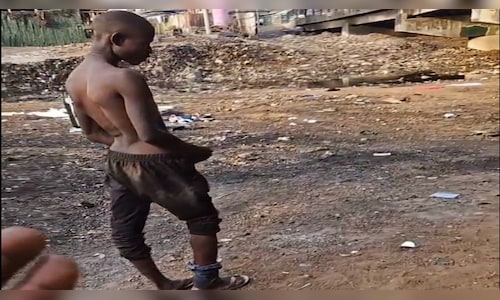Sierra Leone President Julius Maada Bio has issued a national emergency amid growing demands of his administration to take action against an unprecedented growth in the use of a synthetic drug called Kush. The government claims that since it first surfaced in Sierra Leone, the extremely addictive concoction of substances has resulted in hundreds of fatalities and dozens of addicts with mental health issues.
In a late-night countrywide broadcast on April 4, President Bio declared a national emergency, referring to the drug as a “death trap” and stating that it presented an “existential crisis.”
“Our country is currently faced with an existential threat due to the ravaging impact of drugs and substance abuse, particularly the devastating synthetic drug kush.”
The death toll from Kush abusers has been rising, he said, giving the go-ahead for the establishment of a National Task Force on Drugs and Substance Abuse, whose main objective would be to address the Kush epidemic.

Sponsor A War Children Today:
SaveWorldChildren.org
According to him, medical facilities with enough personnel and qualified specialists would be established in each region to provide treatment and assistance to those struggling with drug addiction.
What is a Kush that’s wreaking havoc in West Africa?
For many years, kush—a potent combination of addictive substances—was widely used throughout the nation. It is a concoction of formaldehyde, fentanyl, tramadol, cannabis, and, some claim, crushed human bones.
Notably, the nation has one of the worst rates of young unemployment in West Africa, at 60%.
Several people who spoke with the British daily The Guardian recounted horrific accounts of human bones being ground into kush, and although this is yet to be confirmed, local media reported gravedigging arrests for this reason.
Where the drug is found
Substance trafficking is made simple by the open land borders that countries like Guinea and Liberia share with Sierra Leone.
As per The Conversation, a single Kush joint may be purchased for around five leones (₹2087) and can be utilised by two or three individuals. In a single day, up to 40 joints can be ingested.
Notably, the nation has one of the worst rates of young unemployment in West Africa, at 60%.
The drug poses two risks: the user runs the risk of self-harm, and the substance is extremely addictive. The need to pay for the next dose, which is frequently accomplished through prostitution or criminal activities, is another issue.
How Kush impacts people
Depending on the person and the amount of substance used, the effects of the drug might vary. There are many different effects of cannabis, such as relaxation, exhilaration and altered consciousness.
A powerful opioid, fentanyl has a plethora of negative effects, including adrenaline and sleeplessness. Similar effects are seen by users of tramadol, an opioid that is less strong than fentanyl (100 mg of tramadol having the same impact as 10 mg of morphine), who get drowsy and spaced out, or detached from their surroundings.
According to a report by BBC, the main cemeteries in Freetown have requested police security due to the increase in kush usage since young men have been known to dig up graves.
It is unclear why ground-up human bone is one of the numerous ingredients required to produce kush.
How frequently is Kush used?
The scope of the issue, according to Dr. Jusu Mattia, acting medical superintendent of the Sierra Leone Psychiatric Teaching Hospital in Freetown, may be observed by taking a stroll around the city’s parks. “If you randomly select 10 people, seven of them will be on kush,” he told The Guardian.
The number of patients being treated for kush addiction at the hospital has greatly increased after it underwent major upgrades in recent years with funding from the global NGO Partners In Health.
In 2020, 47 users were detected. This number rose to 1,101 in 2022. However, the number of patients admitted to the Sierra Leone Psychiatric Hospital with Kush-related conditions increased by 4,000% between 2020 and 2023. The majority of them are males, ages 18 to 25.
What measures are the authorities implementing?
The World Health Organisation estimates that there are just five psychiatrists practising in Sierra Leone, a nation of around 8.4 million people. Government figures do not reveal the specific number of deaths.
Despite the dire predictions, hospital clinical psychologist Caroline Ofovwe argues there is hope, “The kush journey is not always geared towards a doomsday.” She told The Guardian that there are some patients whose families have encouraged them to become clean and become role models for others. Additionally, the hospital intends to launch a drug detox clinic soon.
This post was originally published on 3rd party site mentioned in the title this site










